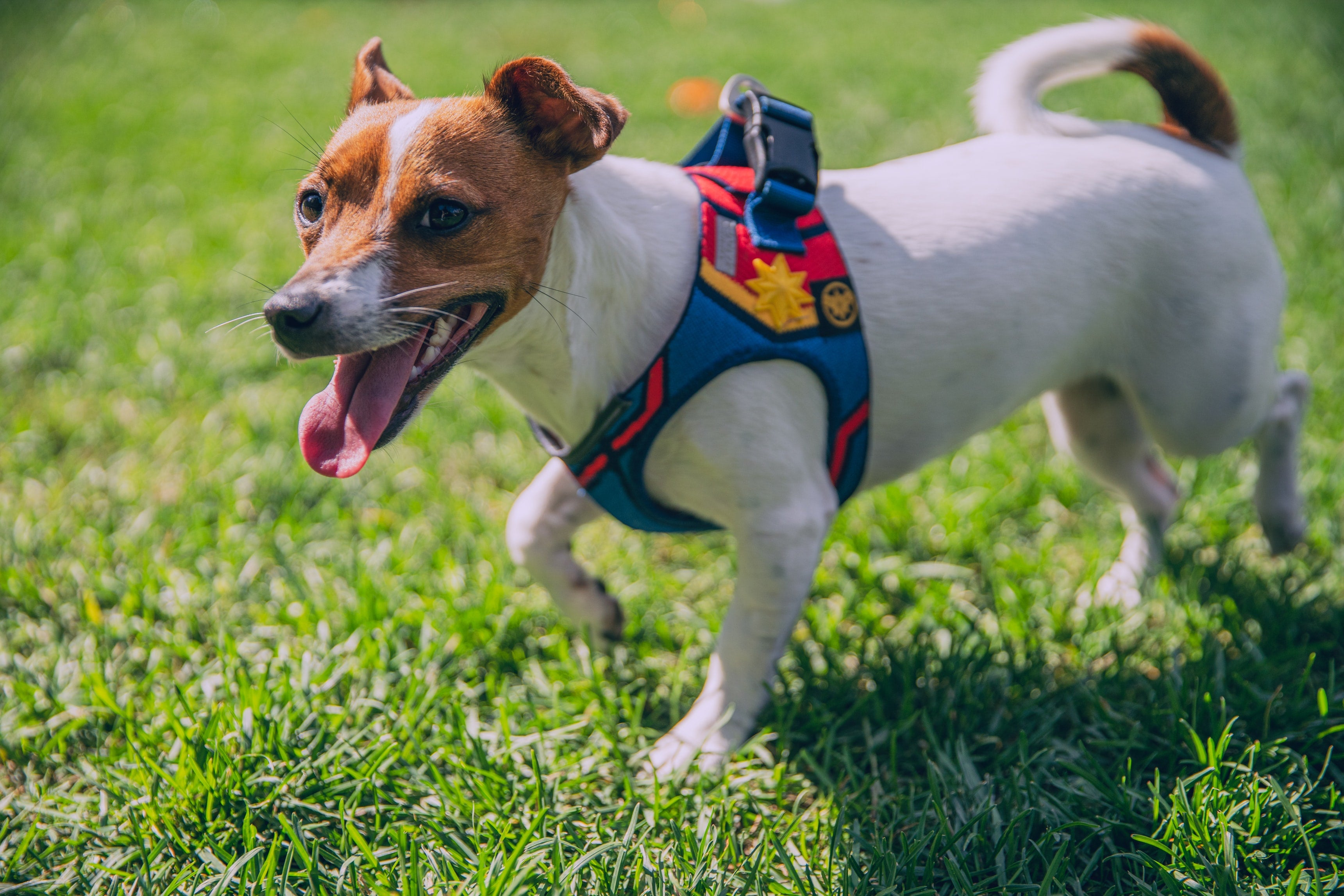- Enhanced Comfort and Safety
One of the most significant benefits of using a dog harness is the enhanced comfort and safety it provides. Unlike collars that put pressure on a dog's neck and throat, harnesses distribute the force evenly across the chest and back. This design reduces the risk of injury, particularly for dogs prone to respiratory issues or those with flat faces (like pugs or bulldogs). By preventing stress on the neck, harnesses help avoid choking, gagging, and coughing during walks.
- Better Control
Dog harnesses offer superior control over your canine companion. For dogs that tend to pull or have a lot of energy during walks, harnesses are a game-changer. The attachment point on a harness is typically on the dog's back, which allows you to guide and manage their movements more effectively. This is especially helpful for dog owners who have large or strong breeds.
- Prevents Escapes
Have you ever worried about your dog slipping out of their collar? Many dogs, especially those with small heads or agile bodies, can easily wiggle their way out of a collar. Dog harnesses, however, are designed to securely fit around your dog's body, minimizing the risk of escapes. This added security can be a lifesaver, ensuring that your pup stays safe and sound during outdoor adventures.
- Ideal for Training
Dog training often involves teaching your furry friend proper leash manners. Harnesses are an excellent tool for training purposes. They allow you to redirect your dog's attention and control their movements more effectively than a collar. Whether you're working on loose leash walking or basic obedience commands, a harness provides a better foundation for effective training.
- Support for Special Needs Dogs
Some dogs have special needs due to age, injuries, or medical conditions. For these pups, harnesses can be a lifesaver. A harness with a front-clip attachment point can help with mobility issues, making it easier for older dogs or those with joint problems to enjoy walks without straining themselves.
- Prevents Neck Injuries
When dogs pull on a collar, it can put immense pressure on their necks, potentially leading to injuries. Neck injuries in dogs can be painful and require extensive medical treatment. Using a harness significantly reduces the risk of neck injuries, providing peace of mind for dog owners and a more comfortable experience for their furry companions.
- Ideal for Small Breeds
Small dog breeds are delicate, and collars can be particularly harsh on their fragile necks. Harnesses designed specifically for smaller dogs offer a comfortable and secure fit. They are gentler on the neck, making them an ideal choice for pint-sized pups.
Conclusion
In summary, dog harnesses offer a plethora of benefits for both dogs and their owners. They provide enhanced comfort, safety, and control during walks, making them a superior choice over traditional collars. Whether you have a large, strong dog or a small, delicate breed, there's a harness designed to meet your specific needs. When it comes to the well-being of your furry friend, opting for a dog harness can be a wise and compassionate choice, ensuring that every walk is a safe and enjoyable experience for both you and your beloved pet.



